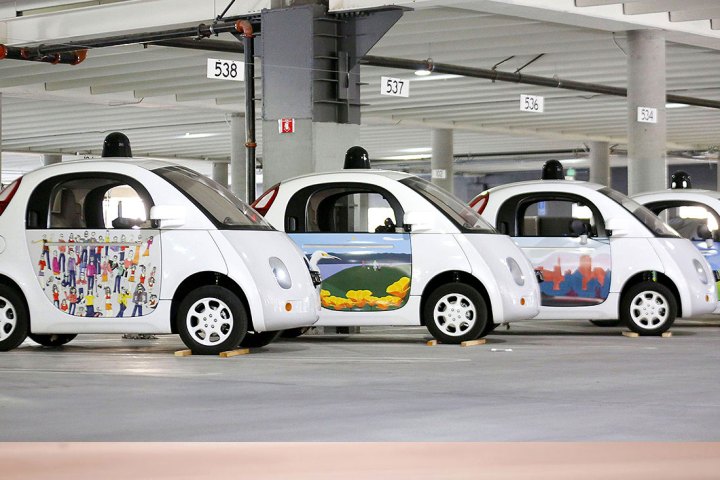
The affirmation is a major step toward commercializing self-driving cars. Many advocates have worried that regulatory red tape will be as much of an obstacle as technology to the deployment of fleets of robo-vehicles. But NHTSA responded positively to a Google proposal for a car that has “no need for a human driver” in a letter to the company discovered by Reuters.
“NHTSA will interpret “driver” in the context of Google’s motor vehicle design as referring to the [self-driving system], and not to the vehicle occupants,” the agency’s letter said. It went on to say that “We agree with Google its [self-driving car] will not have a “driver” in the traditional sense that vehicles have had drivers during the last more than 100 years.”
Current laws in some states explicitly allow testing of autonomous prototype vehicles on public roads, but usually require manual controls. California, for example, required Google to add a steering wheel and brakes to its self-designed autonomous car. Google told NHTSA that having secondary manual controls could actually be dangerous, because it would encourage humans occupants to override the autonomous system’s decisions.
The legal path to commercializing self-driving cars has been unclear so far, but NHTSA outlined some of the things Google would have to do to put an autonomous car on sale. Existing regulations written for human-controlled cars cannot be ignored, so Google would have to design its self-driving car around them. That would mean including steering wheels and brake pedals, but also proving that control systems could register signals normally sent to the dashboard “idiot lights” in traditional cars.
The government has taken other actions in support of self-driving cars recently. In January, the NHTSA said it would work to streamline regulations in order to get more autonomous cars on the road faster. It also plans to establish a nationwide regulatory framework for self-driving cars, and hopes to draft guidelines within six months.
Editors' Recommendations
- Waymo robotaxi attacked and set on fire in San Francisco
- Watch out: Google Drive may have lost months of data
- Cruise’s robotaxi service suspended by California regulator
- Waymo expands robotaxi service area in San Francisco
- Cruise autonomous vehicle drives over woman just after she was hit by another car

